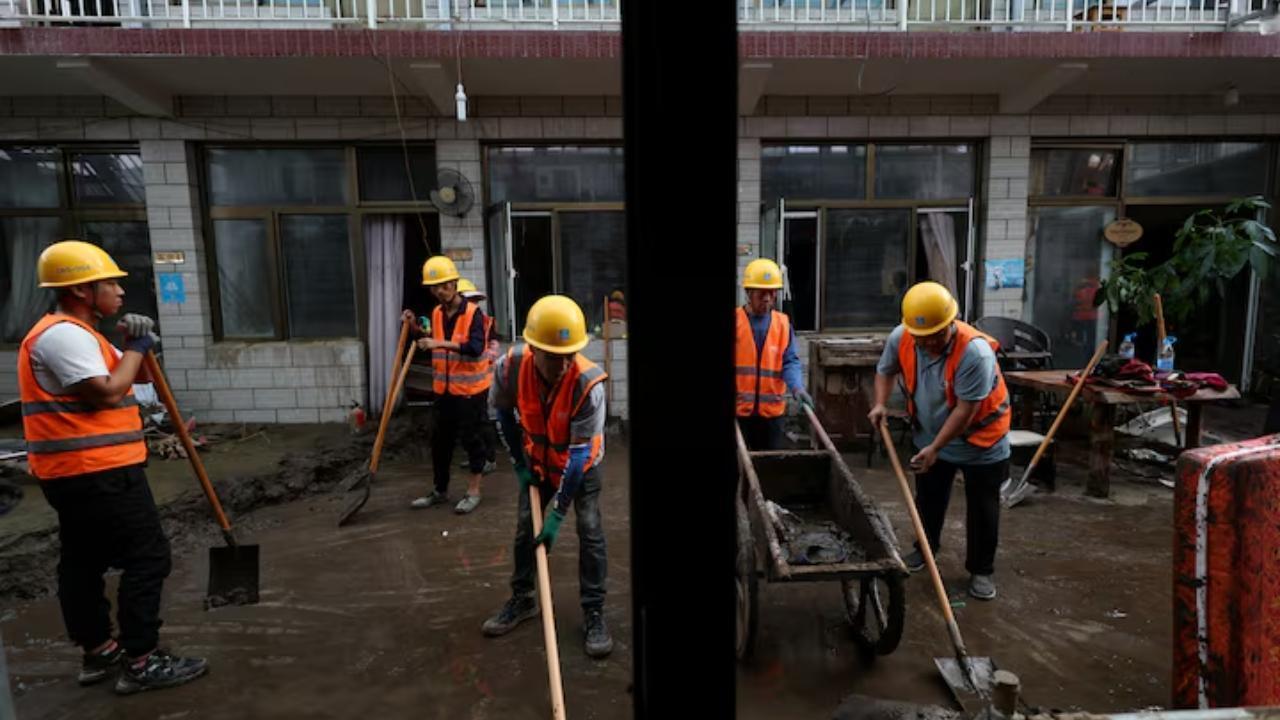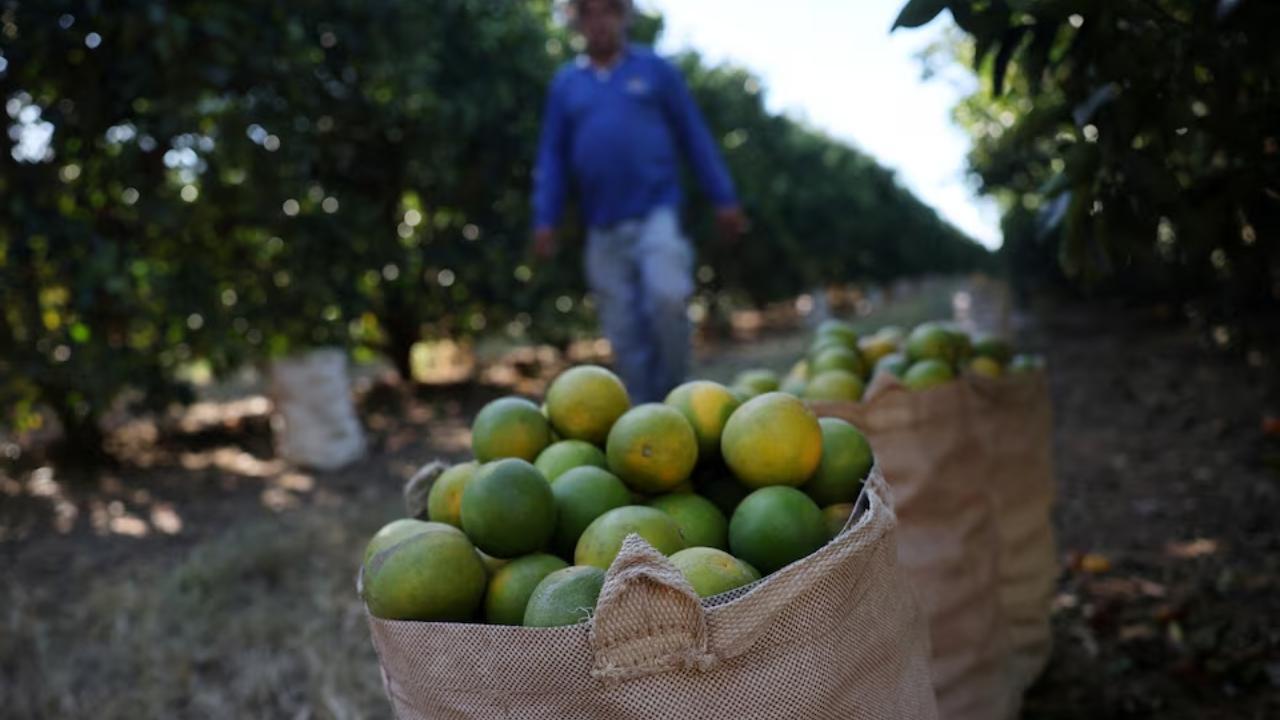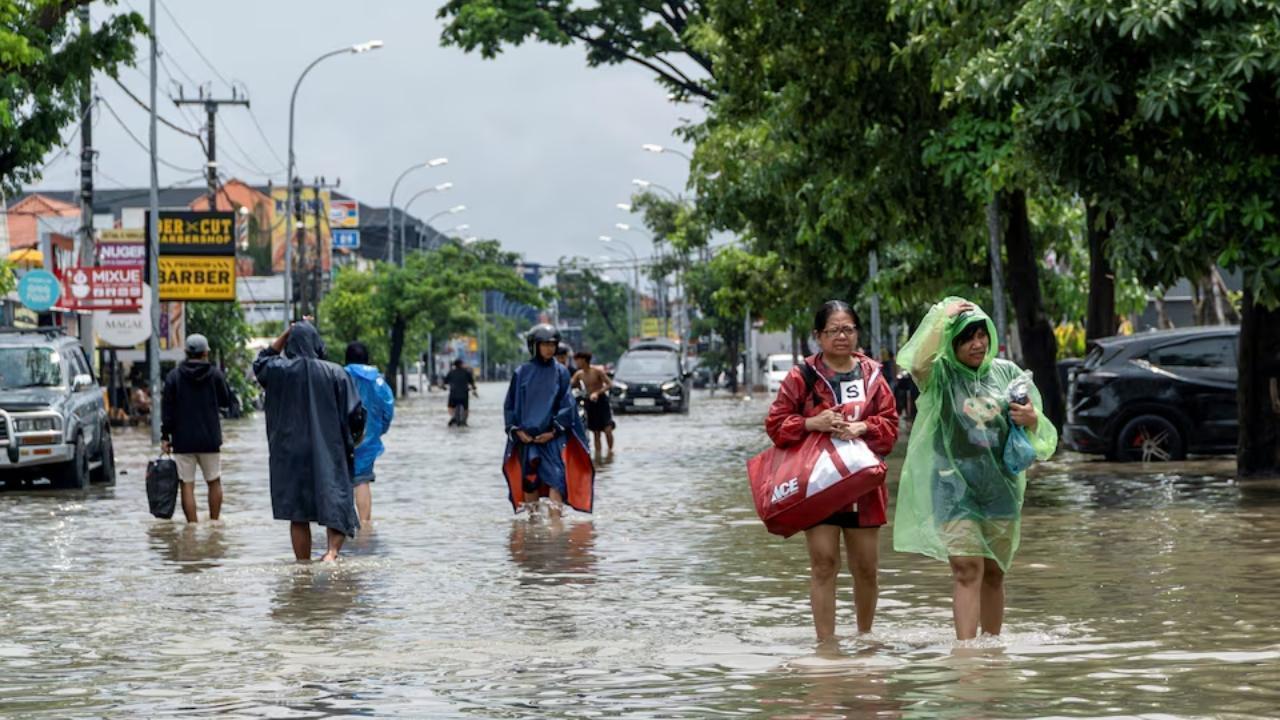
Post by : Monika
Photo: Reuters
A recent Israeli airstrike in Doha, Qatar, has caused new tension between U.S. President Donald Trump and Israeli Prime Minister Benjamin Netanyahu. The attack was aimed at leaders of Hamas, the group that has been fighting Israel for years. But instead of calming the situation, the bombing has made things worse. It upset many countries and raised questions about the partnership between Israel and the United States.
What happened in Doha
Israel carried out an air attack in the capital city of Qatar. The target was Hamas officials who have long lived there. During the strike, several people were killed, including a Qatari security officer and five members of Hamas. Hamas quickly announced that its top leaders had survived, but the damage was still serious.
The United States later revealed that it did not get proper warning about the strike. President Trump said he was very unhappy about how and where it took place. According to him, the lack of coordination hurt both U.S. and Israeli goals in the region.
Why this strike is a big problem
Qatar has been an important mediator in Middle East peace talks. For months, it has hosted meetings with Hamas leaders and carried messages between Hamas and Israel. Because of this role, Qatar was seen as neutral ground where diplomacy could happen.
But the Israeli strike put that role at risk. By hitting Hamas leaders in Doha, Israel made Qatar feel unsafe and disrespected. Many people fear that Qatar will now step away from hosting talks. If that happens, it could become much harder to work toward a ceasefire.
Trump and Netanyahu’s relationship
The alliance between Trump and Netanyahu has been strong for years. Both leaders agree that Hamas is a dangerous group. Both believe Israel has the right to defend itself. But this strike in Qatar showed that even close allies can disagree.
Trump said he supports weakening Hamas but did not like that Israel attacked inside Qatar without proper coordination. Netanyahu defended the move, saying Israel had no choice. He argued that Hamas leaders were using safe places to plan attacks and that Israel could not allow them to hide.
Experts believe this disagreement will not destroy the alliance, but it has shown the limits of how far it can go. Both leaders share common goals, but they may not always agree on methods.
Reaction from Qatar and other countries
Qatar was furious after the strike. Officials there said it was a violation of their sovereignty. One Qatari leader even called the strike “state terrorism.”
Other Arab nations stood by Qatar, criticizing Israel for striking inside a country that has been trying to bring peace. They argued that such actions make negotiations impossible and put the region at risk of even greater conflict.
Some Western countries also expressed concern, saying that the attack in Doha might derail peace talks and create instability across the Middle East.
The U.S. response
President Trump quickly distanced himself from the attack. He said the decision to strike in Qatar was Netanyahu’s alone. He added that he had asked for Qatar to be warned, but the warning came too late.
According to U.S. officials, Qatar only learned about the attack when explosions had already begun. This added to the anger in Doha and made Trump’s position more complicated. On one hand, he supports Israel. On the other, he must keep strong ties with Qatar, an important U.S. partner in the Gulf region.
Impact on peace talks
The bombing in Doha may have serious effects on peace negotiations. For months, Qatar has been working to mediate a ceasefire between Israel and Hamas. Now that its own capital was attacked, Qatar might no longer want to host those talks.
If Qatar leaves its role as mediator, the process could collapse. Without a neutral place and a trusted go-between, Israel and Hamas may find it even harder to reach agreements. Some experts warn that this strike could be the turning point where chances for peace drop sharply.
Wider effects in the Middle East
The strike also has consequences beyond Qatar. Trump has been trying to bring more Arab countries into agreements with Israel, similar to the ones already signed by others. But the bombing in Doha has made some of these countries nervous. They worry about Israel striking in their territory as well.
Meanwhile, Hamas leaders say they are still alive and will not give up. This means that instead of weakening Hamas, the strike may have only made them more determined.
Looking forward
President Trump has made clear that he is not happy about the way the Doha strike happened. He does not want peace efforts destroyed by sudden actions. Netanyahu, however, insists that Israel will not allow Hamas leaders to hide anywhere in the world.
Qatar, for its part, says it will continue to defend its security and honor. It has not yet decided whether to stop being a mediator, but the trust has been badly shaken.
For now, the situation leaves everyone in doubt. Will Trump and Netanyahu repair their bond? Will Qatar keep its role in peace talks? And will the Doha strike make future negotiations impossible?
The answers are not yet clear. What is certain is that this bombing has tested the limits of one of the world’s most important alliances and has left the Middle East on edge.
Qatar bombing 2025










China faces heavy losses from natural disasters in August
Natural disasters in China during August caused $2.8 billion in losses, affected over 10 million peo

Brazil to Propose New Forum for Climate and Trade Talks at COP30
Brazil plans to create a new international forum to discuss how climate policies impact trade, aimin

Brazil's Citrus Industry Hit Hard by Greening Disease
Nearly half of Brazil's citrus belt is affected by greening disease, leading to significant losses i

Sea Shepherd Removes Illegal Octopus Traps in Greece
Sea Shepherd volunteers in northern Greece have removed thousands of illegal octopus traps, rescuing

New Waterbomber to Fight Growing Wildfires Globally
De Havilland Canada's DHC 515 waterbomber, designed to combat increasing wildfires, has received glo

Bali Floods Claim 14 Lives; Search for Missing Continues
Severe flooding in Bali has resulted in 14 deaths, with two individuals still missing. Over 500 peop